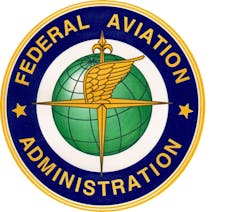FAA Moves to Protect Safety Oversight at Manufacturers from Interference by Managers
Feb. 7—The FAA issued new draft guidance Monday designed to protect its authorized agents who perform safety oversight work at companies like Boeing from interference by business managers.
This follows provisions of the Aircraft Certification, Safety, and Accountability Act passed by Congress in December 2020 — triggered by the failures of FAA oversight during design and certification of Boeing's 737 MAX — requiring the FAA to strengthen the independence of employees inside large companies like Boeing who work on its behalf conducting safety oversight.
The FAA delegates to airplane manufacturers a great deal of the oversight, which is typically performed by senior engineers authorized to act as FAA representatives and who are required to be independent in their judgments and free of any undue pressure to meet cost or schedule targets.
Within Boeing, a large nominally separate organization of about 1,500 people performs this work, consisting of engineers and administrators who, although paid by Boeing, are in theory working for the FAA.
The FAA guidance seeks to implement the requirements of the 2020 legislation by setting up "approved procedures to effectively manage and investigate all reports of alleged or suspected ... interference."
The new guidance notes that any undue pressure or interference with its representatives may result in suspension or termination of a company's right to have its employees do the oversight work, as well as possible civil penalties.
"An FAA delegation is a privilege and not a right," the proposed guidance states.
Boeing and other manufacturers will therefore work under the threat of having their ability to self-certify removed.
The 2020 reform legislation created new penalties for supervisors who pressure employees raising safety concerns, established new whistleblower protections and set up safety reporting mechanisms for FAA's front-line technical staff.
Accordingly, the new FAA guidance requires senior management at airplane manufacturers to give a written commitment to protect any FAA-authorized representatives who report suspected interference, regardless of whether the allegation is substantiated.
Any report of suspected interference or pressure must be provided to the FAA within two business days.
And the FAA must review all such reports and conduct annual compliance reviews.
The guidance attempts to stamp out not only outright acts such as harassment, threats and reprisal but also the imposition of other assigned duties or time constraints that might inhibit an FAA representative from conducting thorough safety oversight.
The FAA is accepting comments on the draft guidance through March 10.
In a statement, Boeing said it "fully supports efforts to enhance transparency and independence" in its safety oversight program.
Boeing said it will collaborate with the FAA to ensure that its engineers working on the safety agency's behalf "can perform their vital roles without interference through open communication and a supportive environment."
___
(c)2022 The Seattle Times
Visit The Seattle Times at www.seattletimes.com
Distributed by Tribune Content Agency, LLC.
